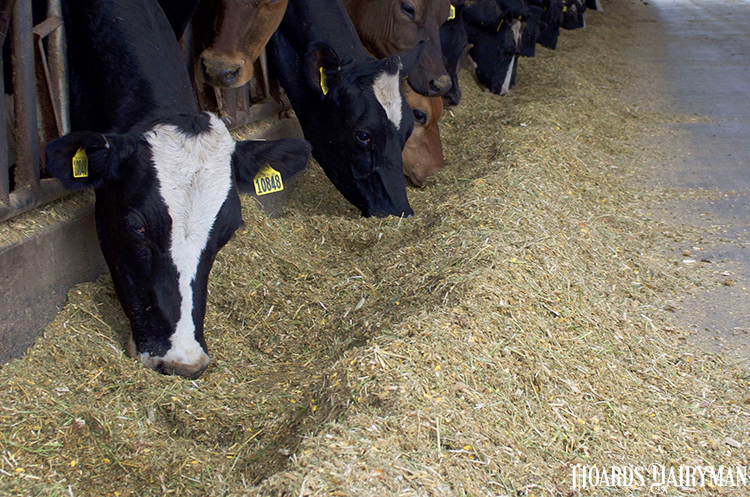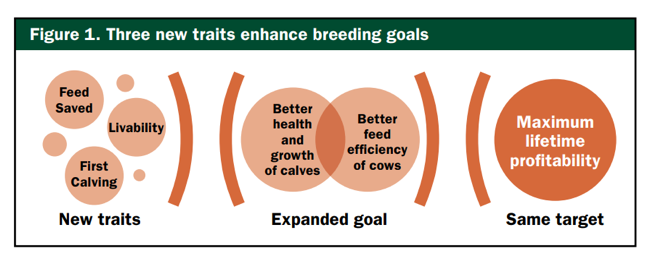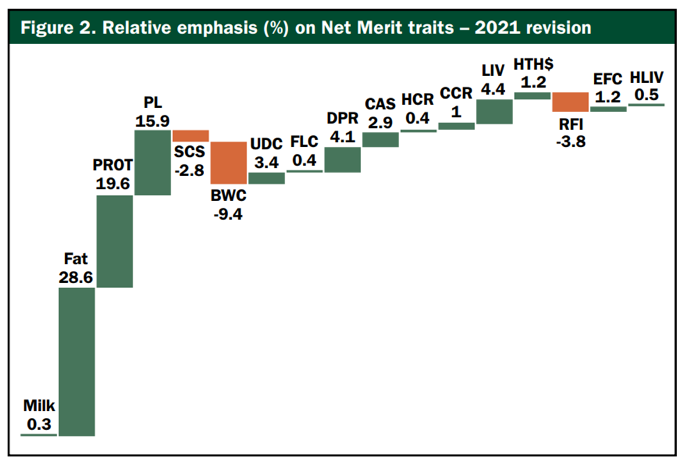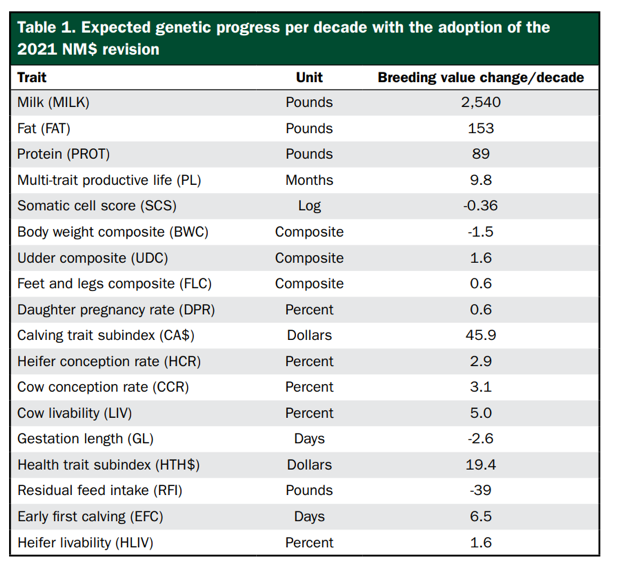New Net Merit debuts this week |
| Aug. 9 2021 |
| By João Dürr, Council for Dairy Cattle Breeding |
|
|
 With the genetic evaluations on August 10, 2021, dairy producers have an improved tool to breed for more profitable and feed-efficient cows. The national genetic selection index — Net Merit — has been revised to include three new traits: Feed Saved, Heifer Livability, and Early First Calving. Since its introduction in 1994, Net Merit has been periodically updated to account for new traits, new research, and the most updated dairy market information. This August 2021 revision is the most significant in a while because of the new traits and important updates to economic weights. What is Net Merit? Net Merit estimates how much lifetime profit each animal will transmit to its progeny. This index drives genetic progress by promoting a balanced selection of all available, economically important traits to maximize cows’ profitability. Selection indices like Net Merit are essential tools because they combine information on many traits into a single value to rank animals and make breeding and culling decisions. There are now over 40 traits in Net Merit, such as milk yield, livability, and somatic cell score. Some traits are incorporated through a composite, like calving ability, health dollars, udder, feet and legs, and body weight. Developed by animal scientists at USDA, Net Merit is published by the Council on Dairy Cattle Breeding (CDCB) – which also calculates most of the individual genetic traits for U.S. dairy. What changed in August? Starting in August, three new traits are in Net Merit: • Feed Saved • Heifer Livability • Early First Calving Feed efficiency has received the most attention. Clearly, feed costs are among the most important drivers of herd profitability. More emphasis on health and growth of heifers is also a great advancement. Read more on Feed Saved at hoards.com or view this talk from Kristen Parker Gaddis of CDCB.  There are also changes in the emphasis given to traits, with more emphasis being given to longer Productive Life and smaller Body Weight Composite. The same research that allowed us to measure and calculate genomic evaluations for Feed Saved also showed that cows’ maintenance costs were previously underestimated. The revised Net Merit better reflects the differences in production costs between cows. Also, relative emphasis is now used instead of relative value to describe the emphasis of traits within the index. Figure 2 shows the relative emphasis of the traits and composites in Net Merit. Whereas relative value accounted for actual economic value, relative emphasis considers that traits have different reliabilities and ranges of genetic variation. This is particularly beneficial when adding new traits with high economic importance and lower reliability, such as Feed Saved and Residual Feed Intake (RFI).  What is the expected genetic progress? The average genetic progress across all herds on Dairy Herd Improvement has been about $60 NM$ in recent years. The Net Merit 2021 formula estimates more progress — mainly due to lower marginal feed consumed for yield and higher value for extra lactations. The correlations of each trait with NM$ will change minimally — except for residual feed intake, where some progress is now expected, and type composites, with a trend toward smaller cows and less upward trend for udders and feet and legs. Table 1 shows the expected progress over 10 years for each trait in the index.  The advantage of using selection indices is to promote balanced genetic progress of all economically important traits for which a reliable evaluation has been developed. The end result is to move the cow population of cows in the most desirable direction — genetically speaking. We want the next generations to be healthier, longer living, more resilient, more efficient, and ultimately more profitable than the current generation. That’s what Net Merit is designed to do! For more, see the feature article from June 2021, “More feed efficient cows are on the way,” by João Dürr. |
